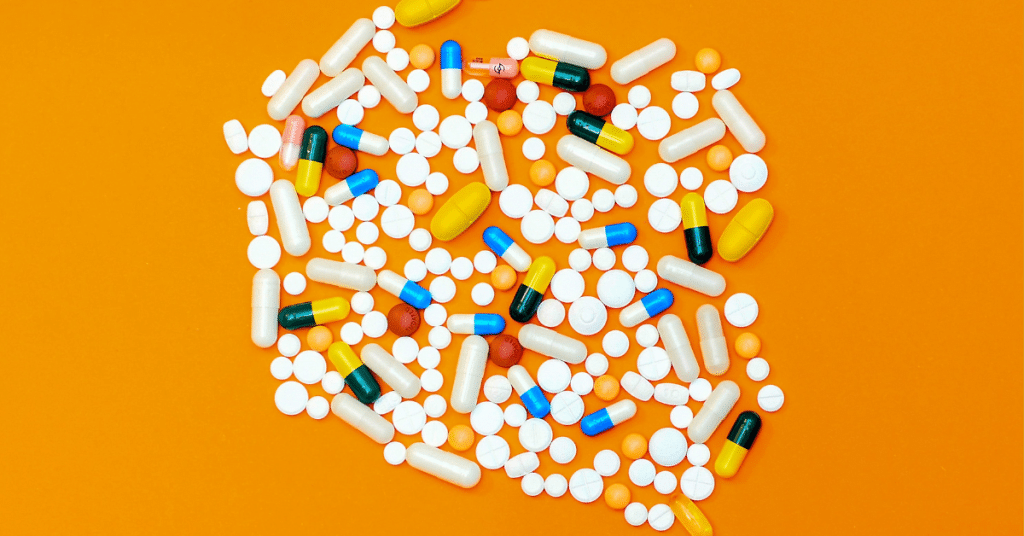Many people wonder why will my cat eat vitamin D pills. You may wonder why your cat eats vitamin D pills for various reasons. There are various reasons why they need food and energy to recover. The other reason might be bored and want to entertain. Further, pet owners must be aware of the consequences of their cats eating vitamin D pills.
Is vitamin D safe for cats? Does your cat have a chance to benefit from these supplements? If humans can take vitamin D, why can’t cats?
In this article, you’ll find answers to all your questions about cats eating vitamin D pills. You’ll also find answers to vitamin deficiency and ways to provide your cat with the correct amount of vitamin D.
Read on!
What is Vitamin D?
Vitamin D is an essential vitamin for cats, as their bodies cannot produce enough of it on their own. Therefore, it must be included in the diet to remain healthy. Vitamin D is referred to as the “sunshine vitamin” because exposure to sunlight helps produce it naturally.
Calcium in the body is regulated by vitamin D, which is essential for healthy teeth, bones, and muscles. As calcium levels in the body are controlled by vitamin D, it indirectly contributes to bone growth and maintenance. Calcium is absorbed from the intestine, moved into and out of bones, and excreted by the kidneys thanks to this hormone.
Vitamin D is also essential for muscle and nerve function. Cats with low vitamin D levels are more likely to develop congestive heart failure and bone disorders such as osteomalacia and rickets because of low vitamin D levels. Furthermore, low vitamin D levels have been linked to boosted cancer risk.
When the body is exposed to direct sunlight during the summer, it produces vitamin D from the diet. Many diseases, including cancer, can be avoided by giving vitamin D supplements, especially during the winter months.
How is it dangerous?
You can find vitamin D supplements in various doses, from 10 micrograms to 1.25 milligrams. Several hundred capsules or tablets can be contained in a single bottle. For dogs and cats, ingesting a few vitamin D tablets is unlikely to cause problems, but if the pet eats a pot with many tablets, it could become ill.
How Can I Safely Give Vitamin D To My Cat?
Cats most efficiently obtain vitamin D through their diets. Beef, liver, eggs, and fish are among the essential foods that a cat should eat to get enough vitamin D.
It is essential to consult with your veterinarian if you suspect that your kitty is not receiving sufficient amounts of vitamin D despite consuming well-balanced meals. You may need blood tests to determine how much vitamin D your cat is absorbing.
In most cases, vitamin D issues can be resolved by changing the cat’s diet. However, if diet alone does not seem to help, your vet might recommend a cat-formulated supplement. Do not give your cat human vitamins and supplements unless your veterinarian recommends them.
If your vet prescribes supplements for your cat, you must follow the instructions regarding the dosage and frequency carefully. Considering how cats process fat-soluble vitamins, too much vitamin D can cause toxicity.
Vitamin D Poisoning
Your cat needs to consume vitamins and minerals to maintain bodily functions, but an excessive supply can lead to health problems. A cat who has ingested too much vitamin D can suffer from vitamin D poisoning, causing a fatal overdose. There are numerous sources of cholecalciferol, or the D vitamin, such as vitamins, rat poison, and even some plants. Cats can suffer poisoning when they accidentally ingest high doses of cholecalciferol or when owners overdose on them with vitamin D.

Spotting the Signs
Animals suffering from vitamin D poisoning do not manifest symptoms immediately and may just do so hours later, as the vitamin causes a gradual increase in blood calcium levels. It is easy to miss the early signs of vitamin D poisoning since they are vague. There is a possibility that animals will experience vomiting and diarrhea at first, as well as drinking more than they should. The prevalence of muscle spasms and fits/convulsions increases with calcium concentration in the blood. In addition to kidney failure, bone disease, bloody vomiting, bloody diarrhea, and changes in cardiac rhythm are caused by calcium deposits in tissues. Untreated vitamin D overdose can lead to death in pets within several days.
Getting Treatment
A cat with Vitamin D poisoning needs to be treated immediately by its veterinarian. An ingested substance may be removed before your veterinarian absorbs it by inducing vomiting. The doctor may utilize activated charcoal if the poison has already been absorbed by the body systems, getting rid of further absorption. A cat that has lost blood due to internal bleeding may require a blood transfusion to aid in eliminating the poison through urination. It is required to hospitalize all felines poisoned with vitamin D during treatment.
Recovery Process
Even if symptoms of vitamin D poisoning appear in cats, the prognosis might not be completely effective. Vitamin D poisoning in cats is most likely to be survived by timing. A fur parent who witnesses a cat consume excessive amounts of vitamin D should immediately head to an emergency veterinary facility. The opinion of a pet medical professional is essential.
What to Do If Your Pet Accidentally Consumes a Human Vitamin Pill?
Pet owners might think it is dangerous when their pets consume one of the vitamins they left sitting on the table. If your pet accidentally consumes a human vitamin pill, don’t worry. There is a chance that the pill will pass through them and cause no harm. But while it is not a significant problem, you still need to consider it a serious matter.
Vitamin supplements are intended to give humans the necessary vitamins to stay healthy. However, animals have different reactions to these pills. By understanding how an animal will react, humans can prevent them from becoming sick.
When an animal accidentally consumes a human vitamin pill, it will have different reactions to the pill based on its age, medical history, and weight, among many other considerations. No matter the situation, not calling the vet and allowing your pet to suffer is too much to bear. A prompt phone call allows for a better quality of care and a much more chance that they will live.
Conclusion
That’s all there is to it! Calcium levels in cats are regulated by vitamin D in their diet. Getting enough Vitamin D maintains strong bones and teeth, a healthy immune system, and good overall health. Don’t hesitate to talk to your veterinarian about vitamin D supplements for your cat! You should also contact the medical professional assigned to your pet if your kitty eats your vitamin D pill by mistake.
Frequently Asked Questions
Do cats need vitamin D like humans?
Unlike a human’s skin, a cat’s skin does not synthesize vitamin D when sunlight is exposed. As a result, cats require vitamin D from their diet to maintain their health, and this nutrient is often added to pet foods. Two types of vitamin D are found in food: cholecalciferol and ergocalciferol.
Can I give my cat human vitamin D?
It is never a good idea to give your cat vitamins intended for humans or other supplements unless your vet has advised you. You must follow the dosage and frequency instructions accurately if your veterinarian prescribes supplements for your cat.
What happens if my cat eats my vitamin D pill?
Within 12 to 36 hours after ingestion, symptoms of vitamin D poisoning begin to appear. Amounts of Vitamin D consumed to determine the severity of symptoms. When taken in smaller doses, people generally experience vomiting, diarrhea, increased drinking and urinating, abdominal pain, depression, and loss of appetite.
What does vitamin D toxicity do?
Calcium buildup in the blood or hypercalcemia is the primary consequence of vitamin D toxicity, resulting in nausea, vomiting, weakness, and frequent urination. In the event of vitamin D toxicity, bones may become painful, as well as kidney problems, such as calcium stones, which could lead to kidney failure.
Do cats get vitamin D from licking themselves?
Cat food contains Vitamin D3, but it is not the primary source of Vitamin D3 for your furbaby. Most of this vitamin is obtained by licking the fur of cats and other furry animals.
Can cats take vitamins every day?
Yes, of course! However, the importance of consulting a veterinarian before giving your cat a multivitamin cannot be overstated. A veterinarian can guide whether a specific health supplement is right for your pet, given that nutrition is a slight issue.
How much is vitamin D too much for a cat?
The Association of American Feed Control Officials (AAFCO) suggested that cat food for adults should provide 280 international units (IU) of vitamin D per kilogram and no more than 30,080 IU.
